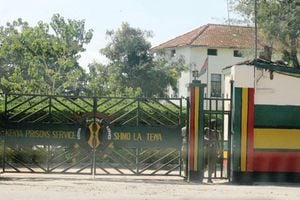
Financial institutions that accepted title deeds as collateral for loans taken by individuals who bought or were allocated grabbed public land are now facing a new dilemma.
Banks and other financial institutions that accepted title deeds as collateral for loans taken by individuals who bought or were allocated grabbed public land are now facing a new dilemma as the anti-corruption watchdog intensifies efforts to recover the properties.
Records from the courts and the Ethics and Anti-Corruption Commission (EACC) indicate that several financial institutions are likely to suffer significant financial losses if the Environment and Land Courts across the country, where the EACC has filed these cases, rule in favour of the state.
Even innocent purchasers are not exempt, as the courts have ruled that as long as a title is illegal, it is futile to argue that one is an innocent purchaser for value; therefore, the court need not consider the innocence or lack thereof of the purchaser on the issue of title nullification.
In the most recent case, a financial institution is facing a loss after the Environment and Land Court in Mombasa ordered that a prime piece of land worth over Sh30 million, adjacent to Mombasa State House, be returned to the public.
Justice Nelly Matheka made the orders after finding that the land (Mombasa/Block XXVI/1010), which was originally earmarked for public use as government staff quarters, had been wrongly allocated to Edward Mwangi Irungu.
The land, measuring 0.0492 hectares, is where the deputy provincial commissioner's official residence was built.
“Having declared that Irungu did not acquire a good title, then needless to say he had no good title to pass downstream,” the judge said.
“His title was not sanctioned by the fact that he transferred it to someone else. If anything, he transferred a title tainted with illegality and fraud and remained null and void ab initio.”
The defendants in the case were Mr Irungu, Minalove Hotel & Restaurant Limited, Equity Bank and former Lands Commissioner Wilson Gachanja.
The court found that the lease registered in favour of Mr Irungu had been improperly procured and subsequently set it aside.
Having established that Mr Irungu had no valid title, the court ruled that he had nothing to transfer to Minalove Hotel and Restaurant, thereby nullifying the transfer of land made on July 2, 2013.
As a result, Judge Matheka declared that the hotel could not have properly charged the property, resulting in the cancellation of the charge registered against the title on July 18, 2013.
The Commission filed this recovery action in 2015 after investigating how the public land was transferred to Mr Irungu, who was working as a district officer.
Mr Irungu admitted that he had worked in government as an administrator for 43 years, starting as a district officer. In particular, he worked in Mombasa between 1995 and 1998 when the land in question was allocated to him.
Mr Irungu and Mr Gachanja defended their title to the suit property, claiming that it was never part of public land and that the title was acquired in accordance with the law. The hotel, on the other hand, contended that it was a bona fide purchaser for value without notice and therefore its title to the suit property should be upheld by the court.
In her judgement, Justice Matheka upheld EACC's submissions that the land, having been set aside for public use, was not available for allocation to Mr Irungu or any other person and therefore all transactions leading to its transfer were illegal, invalid, and null and void.
In addition to returning the land to the government, the judge ordered Mr Irungu and the hotel to pay general damages of Sh5 million for unlawfully interfering with public land in an irregular, illegal and fraudulent manner.
Minalove Hotel and Restaurant has also been permanently prohibited from alienating, transferring, charging, leasing or dealing with the land in question in any manner other than by surrendering it to the Government of Kenya.
The court has advised financial institutions to conduct a thorough search with the relevant land agencies and departments before accepting any encumbrance.
“Equity Bank, though failing to participate in this proceeding, may not have been privy to the fraudulent transactions but failed to undertake proper due diligence. They ought to have gone beyond an official search from the land registry, maybe a search at the Department of Survey of Kenya, that would have led them to discover that the suit property is oddly sandwiched by government land,” said Justice Matheka, adding that this was a legal obligation the bank took lightly.
“They did not look beyond a mere search and for that it has cost the charge they sought to secure,” added the judge.
Read: Land worth over Sh50 billion belonging to State firms grabbed, Auditor-General's report reveals
According to the EACC, this judgment in the Mombasa case serves as a critical reminder to all financial institutions regarding the importance of conducting thorough due diligence before granting loans secured by land titles.
“They should always ensure that the land being used as collateral is free from any legal encumbrances and that it has not been illegally acquired. Vigilance in verifying the legitimacy of land titles will not only protect the financial interests of the financial institutions involved but will also contribute to the broader fight against corruption in the country,” said EACC Spokesperson Eric Ngumbi.
According to the ethics body, it is estimated that in over 50 percent of cases of grabbed public land, the grabbers use the titles to secure bank loans.
In another case in Nakuru, the EACC obtained an order stopping the planned auction of public land that had been charged by a bank after the encumberer defaulted on a Sh40 million loan.
The land was allegedly grabbed from the Agricultural Training Centre (ATC) along the Nakuru-Eldoret Highway in Soilo area within Nakuru town.
“That an order be and is hereby issued prohibiting the respondents jointly and severally, their agents or any other persons from selling, charging ‘alienating, auctioning or in any other way dealing with the parcels of land known as Nakuru LR no 28963(I.R 140278) and Nakuru LR No 28964 (I.R 140277),” Justice Charles Kariuki said in an order dated August 23, 2024.
Hashi Energies Ltd and Ecobank Kenya Ltd are the respondents in the case number E266 of 2024.
EACC said at the time that the targeted land parcels, which were to be auctioned on August 23, 2024, are part of 165 acres of ATC land worth over Sh10 billion that had been grabbed by over 50 individuals.
Mr Ngumbi said these properties are currently under active investigation by the Commission with a view to recovering them and returning them to the public, as well as prosecuting those found culpable.
In Mombasa, the EACC says it has successfully blocked the auction of other land suspected to have been grabbed from the public, including an eight-acre plot of government staff quarters grabbed from the Ministry of Water and its affiliates in the Shanzu area.
This land is adjacent to the Shanzu Teachers College, where the Commission has obtained orders from the Environment and Land Court in Mombasa restraining the private entities sued in the case from developing it.
The Shanzu property is valued at Sh365 million and is part of a larger property in the area valued at Sh1.2 billion that the Commission is targeting in the Shanzu area.
On November 14 last year, the ELC in Mombasa granted the EACC orders restraining the defendants from dealing with the property pending the hearing and determination of the case.
The Commission says it has already completed the recovery of a number of properties, which have since been returned to the public:
These include the Ministry of Housing's Hobley Estate in the Buxton area, which is adjacent to the affordable housing project and is valued at Sh500 million.
The property was reclaimed through court proceedings. It is currently occupied by county government employees. According to the EACC, the Land Registrar has since cancelled the titles held by the grabbers in accordance with the court order.
Others include seven prime properties comprising six government houses belonging to the Kenya Civil Aviation Authority (KCAA) and one house belonging to the Ministry of Housing, all in Nyali/Bamburi Estate, with a combined value of Sh420 million.
There are currently over 130 active civil cases in the Mombasa courts in which EACC is seeking to recover and return to the public over Sh10 billion worth of stolen property that it alleges was fraudulently acquired and is currently in the hands of private individuals.
EACC data shows that Mombasa County is one of the leading counties in Kenya for land grabbing.
The grabbed properties include prime land, road reserves and government houses belonging to various public institutions.











